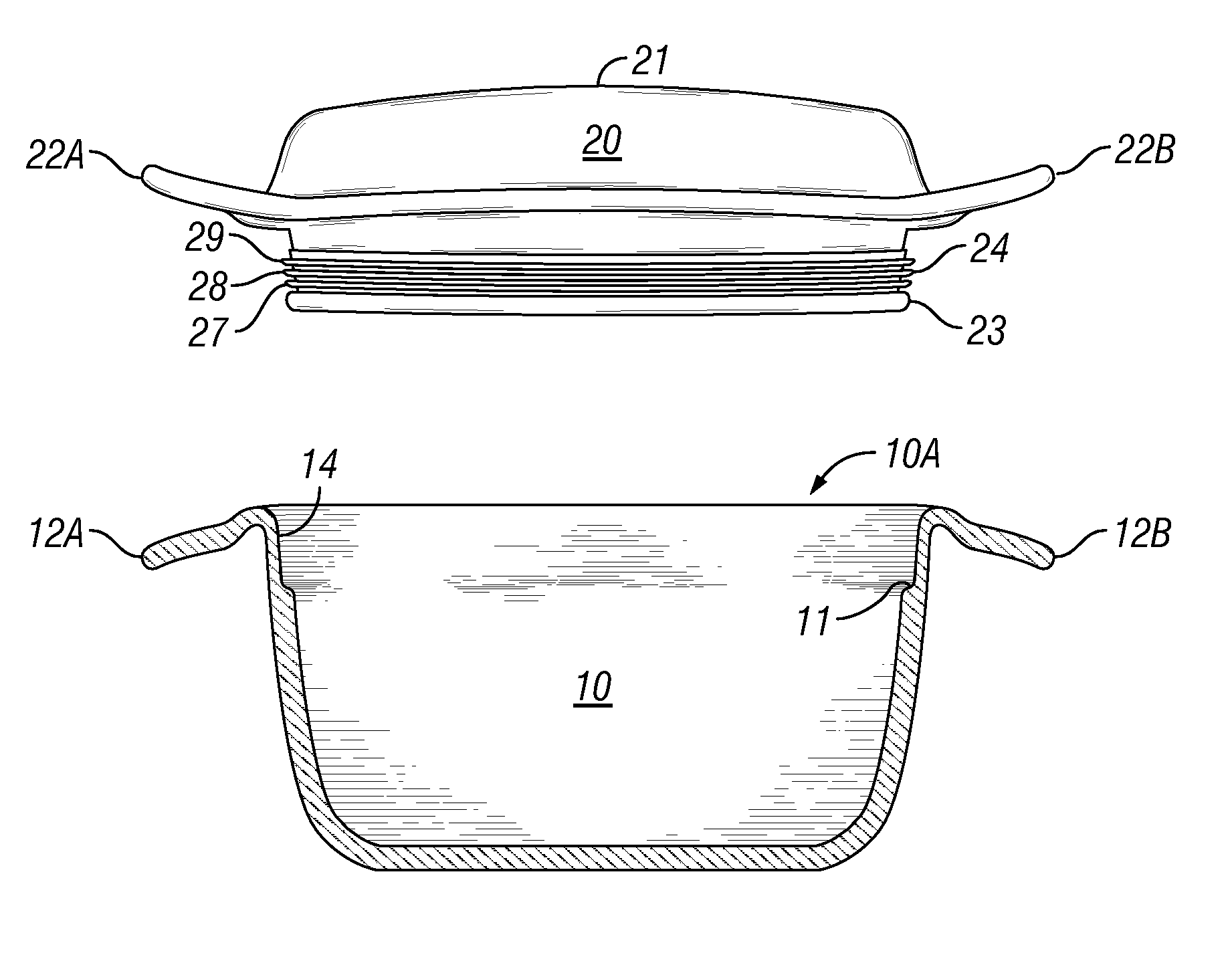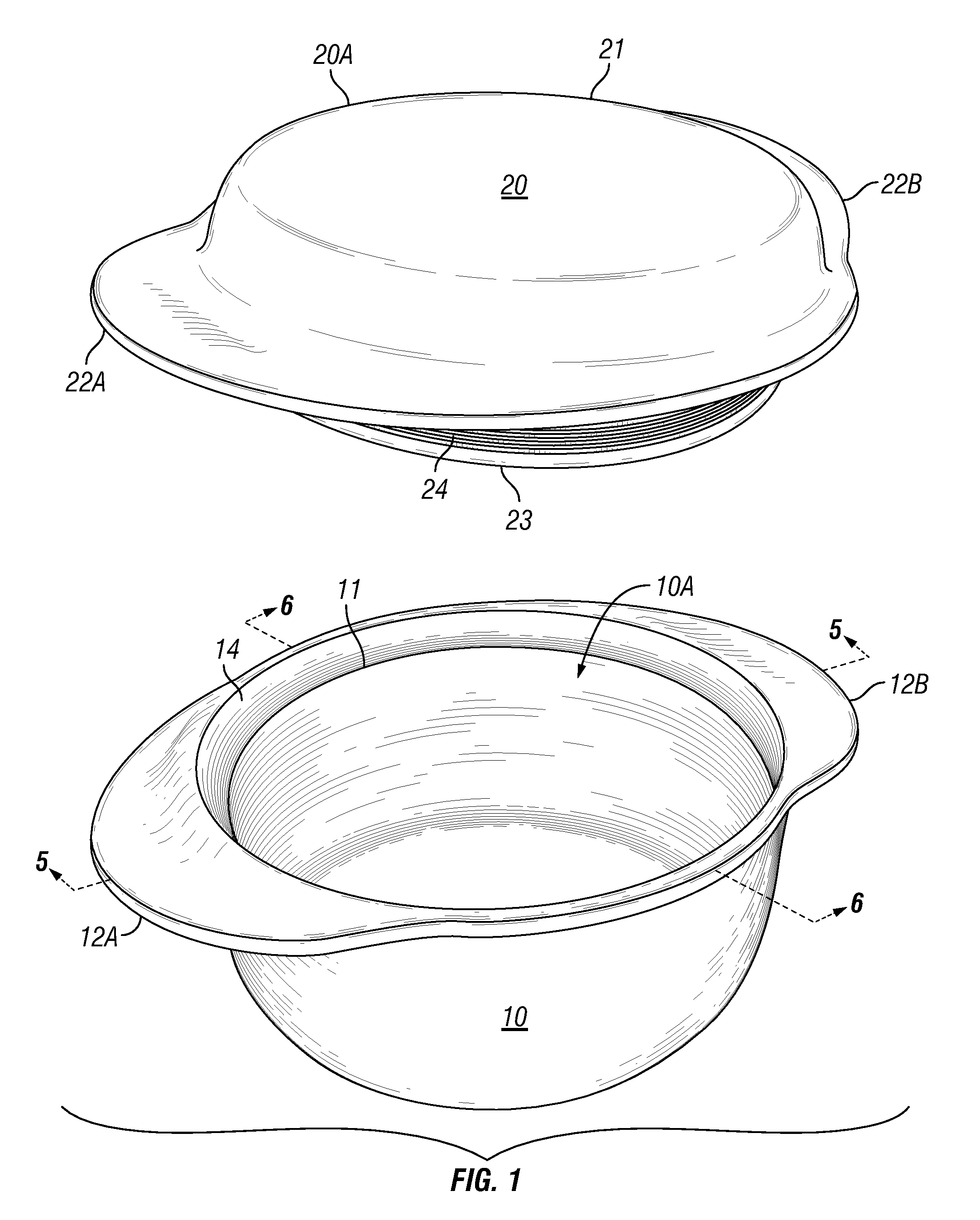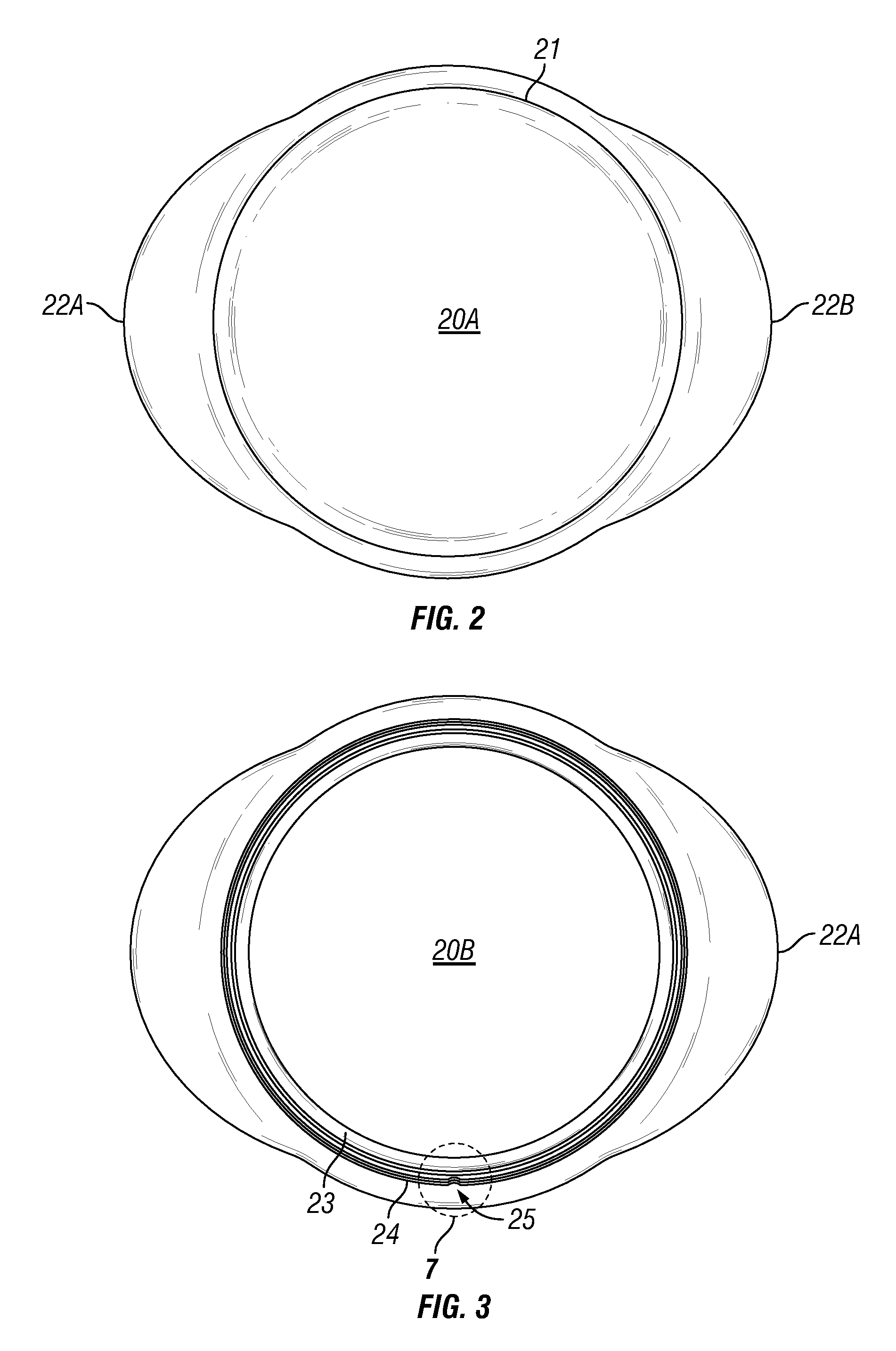Food container apparatus and method of using same
a technology of food container and apparatus, which is applied in the directions of transportation and packaging, cooking vessels, baking vessels, etc., can solve the problems of plastic staining, general disaffection of use of plastics, and certain foods, so as to facilitate the movement of gas volume, prevent excessive pressure from building up, and prevent excessive vacuum
- Summary
- Abstract
- Description
- Claims
- Application Information
AI Technical Summary
Benefits of technology
Problems solved by technology
Method used
Image
Examples
Embodiment Construction
[0017]FIG. 1 is a perspective view of one embodiment of a generally circular ceramic lid 20 in an aligned and spaced-apart relationship to one embodiment of a generally circular ceramic container 10. The embodiment of the lid 20 shown in FIG. 1 comprises a first flange 22A generally opposite a second flange 22B, and a raised portion 21 there between having a generally flat surface 20A, the raised portion 21 providing an interior cavity (not shown—see element 20B shown in FIG. 3) within the lid 20. The embodiment of the lid 20 shown in FIG. 1 further comprises a protruding lip 23 to receive a seal 24 thereon.
[0018]The embodiment of the container 10 shown in FIG. 1 comprises an interior 10A to receive a food therein through an opening 11. The embodiment of the container 10 shown in FIG. 1 further comprises a generally tapered seat 14 adjacent the opening 11 to receive and support the protruding lip 23 of the lid 20. Food to be stored, heated or cooled within the container 10 is placed...
PUM
 Login to View More
Login to View More Abstract
Description
Claims
Application Information
 Login to View More
Login to View More - R&D
- Intellectual Property
- Life Sciences
- Materials
- Tech Scout
- Unparalleled Data Quality
- Higher Quality Content
- 60% Fewer Hallucinations
Browse by: Latest US Patents, China's latest patents, Technical Efficacy Thesaurus, Application Domain, Technology Topic, Popular Technical Reports.
© 2025 PatSnap. All rights reserved.Legal|Privacy policy|Modern Slavery Act Transparency Statement|Sitemap|About US| Contact US: help@patsnap.com



